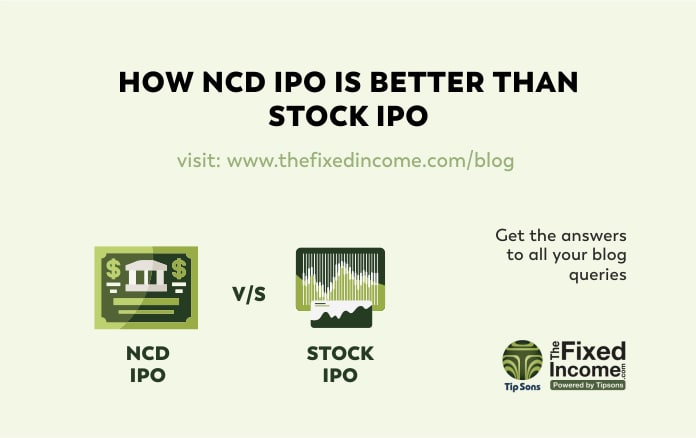Capital is required for businesses to operate and expand. As a result, a company can generate funds from the general public in a variety of ways. Retail investors can profit in a variety of ways by investing in a company.
When is an initial public offering (IPO) the best time to invest?
Initial public offerings (IPOs) are popular with investors (IPOs). Most IPOs in the country are always oversubscribed in the retail segment. This does not, however, imply that all initial public offerings (IPOs) are profitable.
To raise funds, every business decides to go public. As an investor, you must decide what this activity’s purpose is.
Furthermore, it is prudent to exercise caution while the market is at all-time highs. This is because investor excitement does not always equate to positive market returns. It’s ideal to invest in an IPO when the company’s fundamentals are good.
Why Should You Choose NCD?
Taxation
NCDs have tax ramifications, which vary according to the investor’s tax bracket. If NCDs are sold within a year, the STCG rate is based on the income tax slab. If the NCDs are sold after a year or before the maturity date, LTCG at 20% with indexation will apply. Interest income from NCDs is taxed in the same manner as fixed-income securities.
Credit score: Companies are ranked by credit rating agencies such as CRISIL, CARE, and others. A company’s rating is an important factor in determining its potential. A higher credit rating means the company will be able to satisfy its financial obligations. A bad credit rating, on the other hand, implies that the business has serious credit problems. The rating agencies will penalize an issuing corporation if it fails to make payments.
Interest :NCDs can earn a high-interest rate of 7% to 9% if held to maturity. Monthly, quarterly, half-yearly, or annual interest payments are made. A cumulative payout is also possible with NCDs. NCDs that are not secured may have a higher interest rate.
Numerous businesses provide high-interest rates. If you don’t have good credit, though, you should avoid the NCD. This is a wonderful choice when equities aren’t performing well.
Few things to consider.
NCDs are particularly vulnerable to risks linked with business and financial management. As a result, if turnover is affected severely, the credit rating may suffer.
The company will need to borrow additional cash from banks or NBFCs to counteract the damage.
It’s a good idea to keep a few things in mind while picking an NCD company.
Issuer credit rating: Look for a corporation with an AA or higher credit rating. A credit rating assesses a company’s ability to raise funds from both internal and external sources, as well as its long-term viability.
Debt Level: For NCD investors, a background check on the company’s asset quality might go a long way. If the company’s unsecured loans account for more than half of its overall assets, don’t invest.
CAR (Capital Adequacy Ratio): CAR assesses a company’s capital and determines whether it has sufficient funds to withstand future losses. Make sure the company you’re considering investing in has a CAR of at least 15% and has done so in the past.
Non-Performing Asset Provisions
The corporation must set aside at least 50% of its assets for non-performing assets (NPAs), as this is a good measure of asset quality. Take it as a warning sign if the quality declines as a result of bad debts.
The ratio of Interest Coverage
The Interest Coverage Ratio, or ICR, measures a company’s capacity to easily repay its loans’ interest at any given moment. This guarantees that the organization is prepared to deal with any potential evasions.
Your tax bracket
NCDs are attractive to investors in the 10% and 20% tax brackets. This is because if your tax bracket is low, you can earn more.
Myth:
To go public, a business must have a solid financial position.
It’s not as straightforward as that. Although an IPO’s financials have been audited, its future stability and predictability are unknown. The fortunes of a firm are frequently determined by events beyond its control. Many factors, for example, could operate against a corporation, such as global growth rates, tariffs, government regulation, and the period of the economic cycle.
Conclusion
When it comes to investing, each of the four possibilities listed above is distinct. Each choice has its own set of advantages for the investor. So, based on your investing goals and horizons, carefully consider your investments.






















